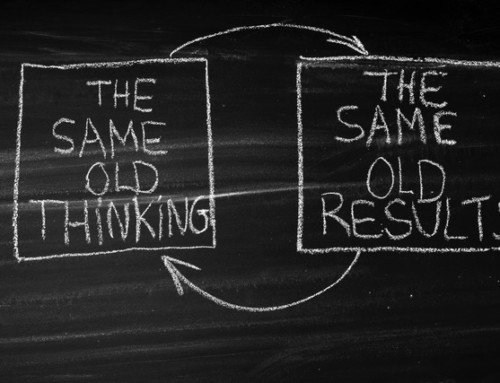Recreational pot smoking is now legal in four states in the US. Medical marijuana is currently legal in 23 (and counting) states. The trend seems clear – if medical and/or recreational marijuana is not currently legal in your state, it’s likely to become so in the relatively near future.
But what does that mean for employers and employees in those states?
Is it a free-for-all? Can you legally smoke or consume marijuana, more commonly referred to as “pot” any place, any time? What are employee “rights”? Are employers now required to hire and retain employees even when they test positive for marijuana? Are employers now required to allow employees to smoke or consume pot during work or after-hours with no repercussions?
The media, HR professionals, Labor Lawyers, employers, employees, recruiters (like myself) and others involved in the screening, hiring and testing of employees are a-buzz (no pun intended) with those questions and more. The point of this article is to provide some insight about where employers and employees stand today.* “ALL employers need to revisit their policies around drugs and alcohol in the workplace,” strongly suggests Amy McGeachy, HR Consultant and Leadership Coach.
General Guidelines Regarding Your Burning Questions*
Employers
The Laws – What’s Changed? What Hasn’t?
- Employers have a right to a drug free workplace. No law requires an employer to allow the use of marijuana, including medical marijuana.
- Federal and State laws concerning marijuana have not changed with regard to employment matters.
- Drug testing is still required for Employers who receive federal funds ($100 K or more in federal contracts).
- Not all companies are required to have a drug policy in place unless the employees are regulated by Federal Agencies.
- Under Federal Law cannabis (marijuana) is a Schedule I drug in the same category as heroin, Lysergic acid diethylamide (LSD), phencyclidine (PCP), and hallucinogenic mushrooms. Schedule I drugs are considered to have high potential for abuse with no accepted medical use. State law does not preempt federal law. The production, distribution, sale, possession and use of marijuana is illegal and may be prosecuted under US federal law.
Drug Policy Guidelines
- Seek legal counsel before starting a drug-testing program or enforcing a drug use policy.
- Know your state laws. In some states, a refusal to hire a medical marijuana user based on a positive drug test for marijuana technically violates state law.
- Drug testing works best when implemented based on clear, written policy that is shared with all employees.
- Pre-employment drug testing and the recruiting process. At this time, employers with a drug free policy in place can request drug testing after a contingent job offer has been made to an applicant.
- If employers want to conduct random drug tests, they must have a random drug testing policy in place and test everyone.
- Drug testing is allowed on the basis of reasonable suspicion, such as when someone is red-eyed, reeking of marijuana or slurring their words or an employee is injured on the job to rule out drug and alcohol use, if the employer has a drug free workplace policy in place.
- Test honestly. You must get consent from an employee or job applicant in order to test them.
Employees
The Laws – What’s Changed? What Hasn’t?
- Federal and state laws concerning marijuana have not changed with regard to employment matters. The drug and alcohol policy your employer has in place is still in place. Most employers prohibit marijuana use. Request a copy of the company drug and alcohol policy and read it.
- Employers have a right to a drug free workplace.
- Pre-employment drug testing is allowed and legal, if the company has a drug free workplace policy in place. If you receive a job offer of employment, it will be contingent on a negative drug test result even if you have a medical marijuana permit.
- There are no employment protections for marijuana use. What that means is marijuana use is not a protected status under the law – employers can respond as they choose (discipline or terminate your employment) if they find out you’ve used or have been around pot consumption during your off hours, even medical marijuana.
Common Employee Rights Questions
- Are employees now allowed to smoke or consume pot at work? Probably not unless you have an extremely lenient employer or you work for yourself. Working while “high” could be treated the same as working under the influence of alcohol and other drugs – likely grounds for termination.
- Am I allowed to bring pot to work? That depends on whether or not your employer has stipulations in their employment policy about bringing drugs to work and if you live in a state that allows medical or recreational marijuana use.
- Can you smoke pot after work? Yes and no. Not if your employer has a policy that forbids it, even if you have a medical marijuana permit. Yes, if your employer does not have a policy that forbids it and you have a medical marijuana permit or live in a state that allows recreational marijuana use.
The Times They Are A Changin’
Whether you’re an employer or an employee, be safe, check your company policy. If you’re an employer and your responsibility is setting or enforcing drug use policy, this is a great time to contact an attorney and ensure your policies are current and appropriate.
After all, according to Jay Leno, “Forty million Americans smoked marijuana; the only ones who didn’t like it were Judge Ginsberg, Clarence Thomas and Bill Clinton.”
*This article should not be considered legal drug and alcohol policy advice. Dorigan & Associates strongly recommends employers consult an attorney specializing in employment policy to develop and monitor drug and alcohol policy and protocol in their company’s overall hiring process.
Marijuana @ Work. What You Need to Know
Connie Dorigan, Founder and Director of Recruiting, sees the food processing industry as the link between good living and good people. She’s the west coast’s most experienced and trusted food processing recruiter. She also provides Executive and Career Coaching and lots of free job search tools. Once you’ve connected with Connie, you’ll always be connected.
© 2018 Connie Dorigan. All rights reserved.
This is a general interest article and does not constitute specific or legal advice.





